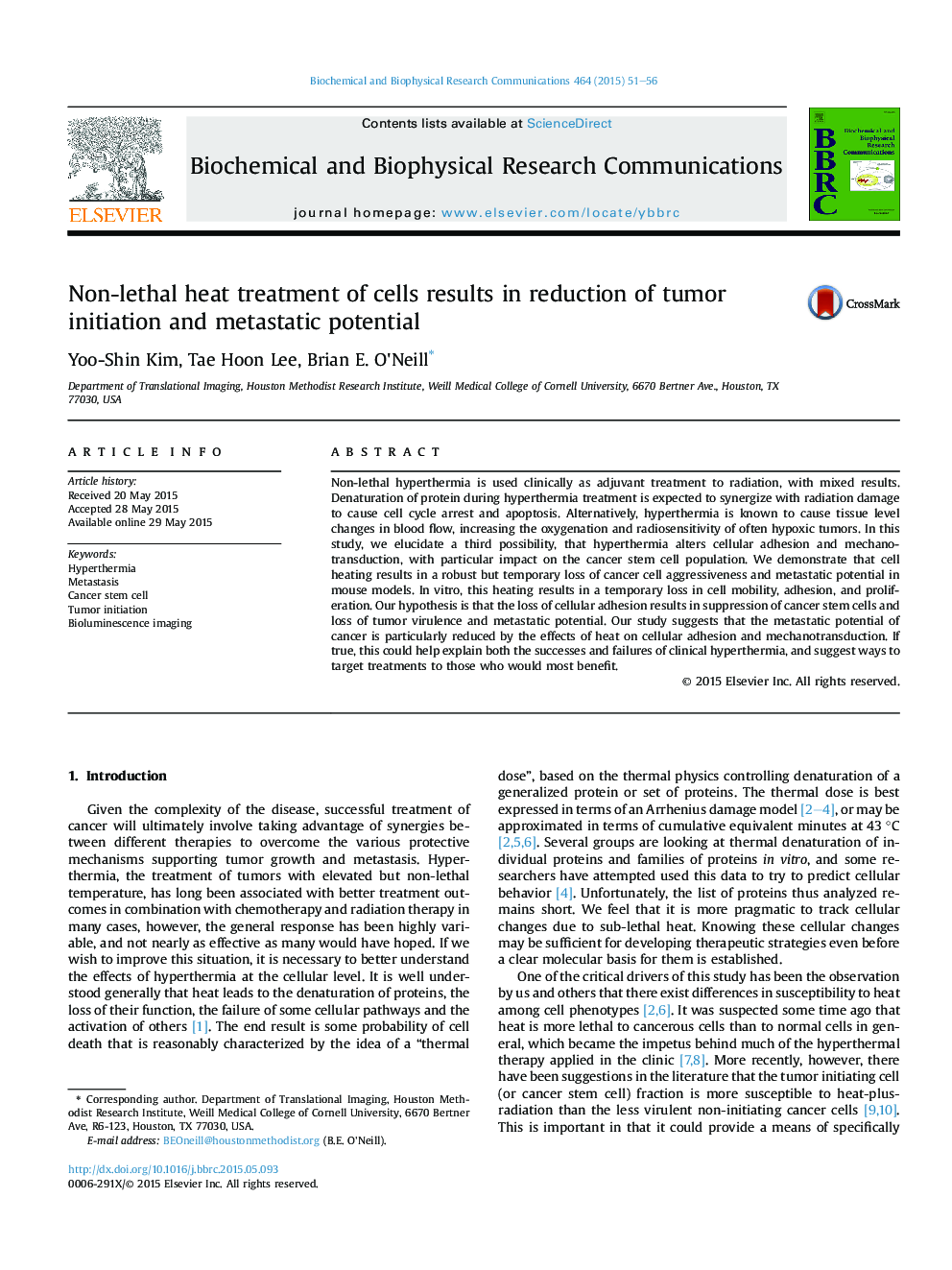| Article ID | Journal | Published Year | Pages | File Type |
|---|---|---|---|---|
| 10751726 | Biochemical and Biophysical Research Communications | 2015 | 6 Pages |
Abstract
Non-lethal hyperthermia is used clinically as adjuvant treatment to radiation, with mixed results. Denaturation of protein during hyperthermia treatment is expected to synergize with radiation damage to cause cell cycle arrest and apoptosis. Alternatively, hyperthermia is known to cause tissue level changes in blood flow, increasing the oxygenation and radiosensitivity of often hypoxic tumors. In this study, we elucidate a third possibility, that hyperthermia alters cellular adhesion and mechanotransduction, with particular impact on the cancer stem cell population. We demonstrate that cell heating results in a robust but temporary loss of cancer cell aggressiveness and metastatic potential in mouse models. In vitro, this heating results in a temporary loss in cell mobility, adhesion, and proliferation. Our hypothesis is that the loss of cellular adhesion results in suppression of cancer stem cells and loss of tumor virulence and metastatic potential. Our study suggests that the metastatic potential of cancer is particularly reduced by the effects of heat on cellular adhesion and mechanotransduction. If true, this could help explain both the successes and failures of clinical hyperthermia, and suggest ways to target treatments to those who would most benefit.
Related Topics
Life Sciences
Biochemistry, Genetics and Molecular Biology
Biochemistry
Authors
Yoo-Shin Kim, Tae Hoon Lee, Brian E. O'Neill,
